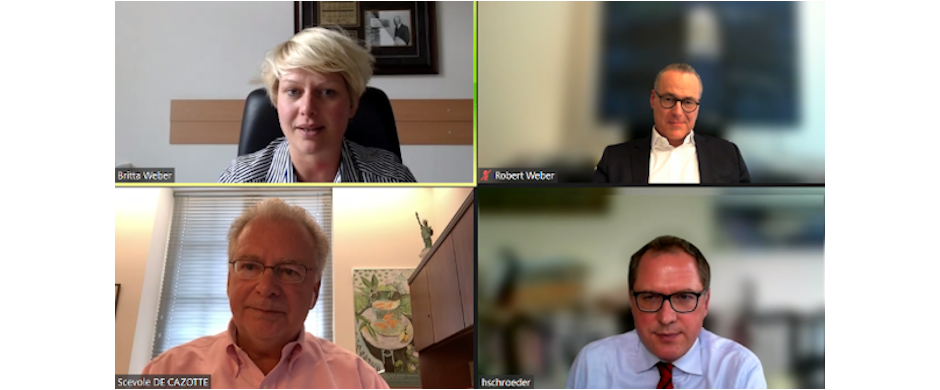In 2018, Germany adopted its Model Declaratory Action (Musterfeststellungsklage), which allows qualified entities, like consumer associations, to bring a declaratory action on behalf of consumers. Unlike the U.S. class action system, the "Musterfeststellungsklage" is an opt-in procedure and has a number of safeguards to prevent abuses. Since its adoption, the new collective redress law has been used in a few well-publicized cases, like the diesel emission case against VW.
Our speakers Scevole de Cazotte, Senior Vice President of International Initiatives at the U.S. Chamber Institute for Legal Reform (ILR), and Prof. Dr. Hans-Patrick Schroeder, Partner at Germany Freshfields Bruckhaus Deringer focused on the changes which the EU Directive on Representative (Collective) Actions could bring to the collective redress environment in Germany. Mr. de Cazotte discussed the details of the EU Directive and Germany's current collective redress system, while Prof.Dr. Schroeder shared examples from a German defense lawyer’s perspective.
The EU Directive requires each member state to establish a collective action system to allow consumers to sue for damages, for both domestic and cross-border claims. While the EU has included safeguards for cross-border actions, the details of domestic collective action systems are left to national governments to decide.
Germany has until December 2022 to transpose the EU's Directive into its national laws. Now the government must figure out how this new Directive fits with the pre-existing Model Declaratory Act.
Our speakers addressed topics of how the "Musterfeststellungsklage" has worked so far and what kind of claims have been brought forth, how the new EU Directive fits with the German "Musterfeststellungsklage" and how it could alter Germany's collective redress environment. They also stated their thoughts on how the Directive could be implemented without dramatically increasing liability for companies without opening the door to litigation abuses.
In conclusion, practical experiences from defending collective actions were presented as well as ideas on how future regulations of consumer claims and collective actions might balance the interests of individual consumers, corporate defendants and society as a whole.
Learn more about the IRL guideline on how to implement the directive to minimize the risk of litigation abuse and take a look at the website devoted to this issue. For additional information on AmCham Germany's Corporate & Business Law Committee please click here.
E-mail us your questions or propositions for future Law Committee meetings to membership@amcham.de.

